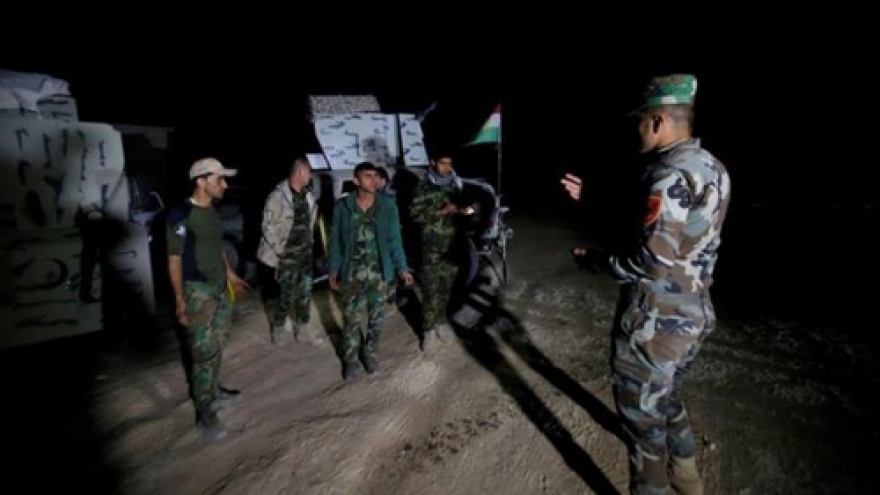Iraqi army aims to reach site of Islamic State executions south of Mosul
The Iraqi army was trying on October 27 to reach a town south of Mosul where Islamic State has reportedly executed dozens to deter the population against any attempt to support the US-led offensive on the jihadists' last major city stronghold in Iraq.
 |
| Iraqi pro-government forces are seen in Qayyara. REUTERS/Alaa Al-Marjani |
The militants shot dead dozens of prisoners there, most of them former members of the Iraqi police and army, taken from villages the group has been forced to abandon as the troops advanced, officials in the region said on October 26.
The executions were meant "to terrorize the others, those who are in Mosul in particular", and also to get rid of the prisoners, said Abdul Rahman al-Waggaa, a member of the Nineveh provincial council. Some of the families of those executed are also held in Hammam al-Alil, he said.
U.N. human rights spokesman Rupert Colville on October 25 said Islamic State fighters had reportedly killed scores of people around Mosul in the last week.
A Reuters correspondent met relatives of hostages south of Mosul. One of them was a police officer who had returned to see the family that he had left behind when his village fell under the militants' control two years ago.
"I’m afraid they will keep pulling them back from village to village until they get to Mosul. And then they will disappear," he said, asking not be identified to protect family members still in the hands of the fighters.
Reuters also spoke to a woman and an elderly man who were part of group of families forced to march two to three days to reach Mosul from the villages of Safiya and Ellezaga, about 30 km (nearly 20 miles) and 50 km (30 miles) to the south.
Children and the elderly were released when they arrived in Mosul, on October 25, and told to stay with relatives, they said, speaking on the phone from one of the few places where there is still telephone coverage, on the city's edges.
A resident of Mosul, Rayyan, said he saw the families when they arrived in the city, "their bare feet bleeding and covered with dust as if coming from under the rubble."


